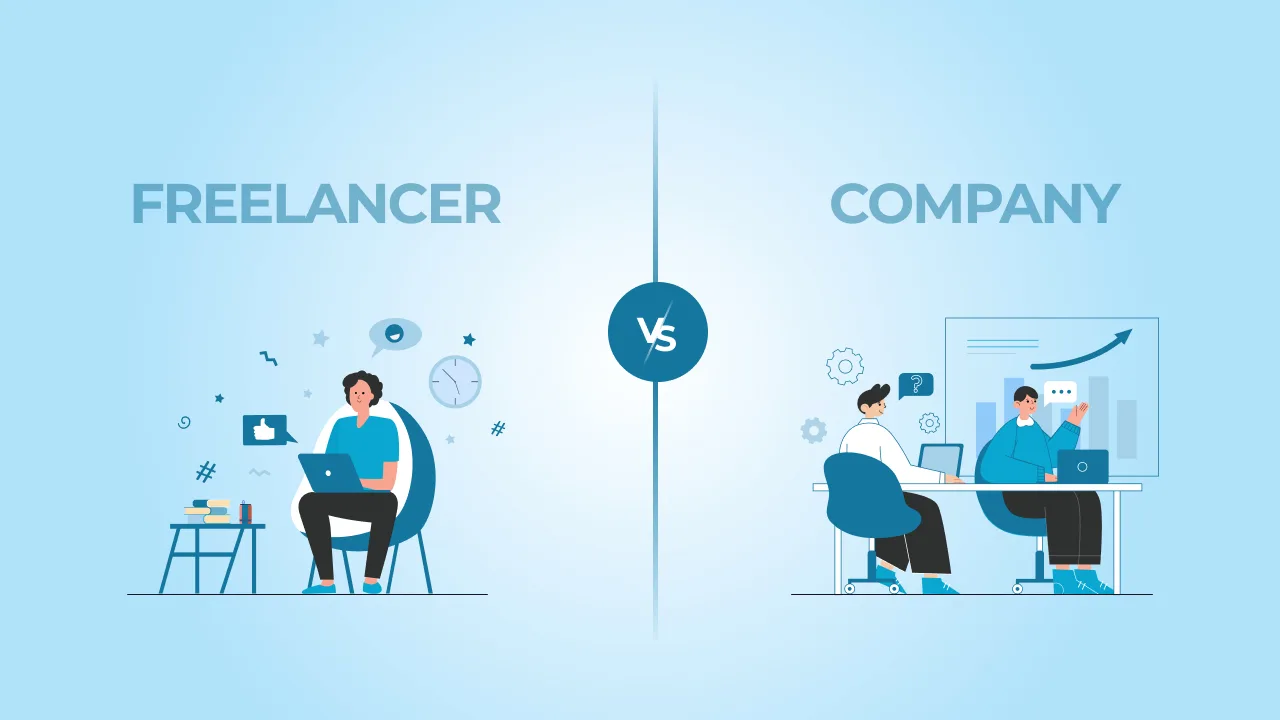Hiring developers for a startup isn’t like hiring for established companies. Startups have unique challenges: tight budgets, the need to scale quickly, and constant changes in direction. Every new hire can either boost your momentum or slow things down. That’s why it’s important to find developers who can do more than just code—they must bring versatility, passion, and the ability to adapt to evolving goals.
The global developer population is forecasted to hit 28.7 million by the end of 2024, an increase of 3.2 million compared to 2020. A large part of this growth is expected in China, with annual growth rates projected between 6% and 8% leading up to 2023.
But Why Hiring Developers for Startups is Complicated?
- Fluid Roles
- Lack of Structure
- Time Pressure
- Limited Budgets
- Competing for Talent
In a startup, roles are often fluid. For example, a developer might be writing code one day and brainstorming product ideas the next. Unlike larger companies where roles are clearly defined, startup developers need to be comfortable wearing many hats. They should thrive in environments where priorities shift quickly, and be resourceful enough to figure things out even without a detailed job description.
Another big factor?
Startups typically don’t have the luxury of time or deep pockets to hire slowly or offer top-tier salaries. Instead, they need to attract talent with other things, like an exciting vision, potential equity, or the chance to work on innovative products from the ground up. This means you are often competing against larger companies for the same talent, and you will need to be creative about what you offer right from day one.
In this blog post, we will give you a detailed beginner-friendly guide on how to hire developers for your startup company.
Let cmsMinds guide you through the process! Reach out today to discover how we can help you find talented developers who fit your vision and accelerate your growth.
A Step-by-Step Guide to Hiring Developers for Your Startup

This section breaks down the key steps to ensure you find talent that not only fits your technical needs but also aligns with your company’s long-term goals. From defining core requirements to integrating new hires smoothly into your team, these steps will help you build a strong development team from the ground up.
- Define What Startup Needs
- Go Global With Your Search
- Test More Than Just Technical Skills
- Be Cautious With Freelancers for Core Roles
- Leverage Specialized Agencies and Platforms
- Ensure a Smooth Onboarding Process
Step 1: Define What Your Startup Needs
-
Identify Core Needs
Before you start hiring, it’s essential to clarify your startup’s specific needs. What stage is your product at? Are you building an MVP, scaling an existing product, or refining features for a growing user base? Knowing this will help you determine the type of developer you need—whether it’s a full-stack developer to handle a bit of everything, or specialized front-end or back-end expertise. If your product is still in the early stages, a full-stack developer may be ideal due to their versatility. On the other hand, scaling requires specialized skills to ensure your systems can grow seamlessly.
-
Prioritize Startup-Specific Traits
In startups, a developer’s ability to adapt and solve problems quickly is often just as important as their technical skills. Look for traits like adaptability, willingness to learn, and a strong problem-solving mindset. Startups evolve fast, and the ability to pivot or take on new tasks is so important. Developers should also be a good cultural fit, sharing your company’s values and being comfortable working in an environment where roles may be fluid.
-
Balance Technical Stack Choices with Long-Term Scalability
When deciding on your technology stack, consider both short-term and long-term needs. The right tech stack will not only allow you to build your product efficiently today but should also provide room for growth as your user base expands. Technologies like JavaScript frameworks (React, Vue.js) or backend solutions like Node.js and Python are popular choices because they offer both flexibility and scalability. Make sure your developers are proficient in the stack that aligns with your startup’s roadmap, and ensure that the technologies you choose won’t box you into limitations later on.
Step 2: Go Global with Your Search
-
Embrace the Global Talent Pool
Hiring remotely opens up access to a much wider range of talent, which can be especially helpful if your local market is highly competitive or expensive. Startups often struggle to find affordable, skilled developers in saturated tech hubs. By looking globally, you can tap into top-tier talent from regions where costs might be lower, without sacrificing quality. Remote hiring allows you to recruit the best developers, regardless of geography, which can be a game-changer for your startup’s success.
-
Use Remote Recruitment Agencies like DistantJob
Agencies like DistantJob specialize in helping startups find and hire full-time remote developers. These agencies often have a pre-vetted pool of candidates and handle many of the administrative and legal complexities associated with international hires. This can save your startup time and effort, allowing you to focus on selecting the right person rather than navigating remote hiring logistics.
-
Target Developer Communities
Aside from agencies, you can directly engage with niche developer communities. Platforms like GitHub, Stack Overflow, and subreddits like r/forhire on Reddit are treasure troves of engaged, talented developers. These spaces allow you to see potential candidates in action—how they think, what they contribute, and their overall engagement with the developer community.
-
Remote Hiring Requires the Right Tools
Managing remote teams effectively depends on having the right tools in place. Clear communication and collaboration are key. Make sure to invest in platforms like Slack, Trello, or Asana to keep everyone on the same page. Use version control systems like GitHub to collaborate on code, and set up regular check-ins to ensure your team feels connected and aligned.
Step 3: Test More Than Just Technical Skills
-
Real-World Problem Solving is Key
When hiring developers for a startup, their ability to solve real-world problems is often more important than simply having the right technical skills on paper. A great way to assess this is by giving candidates small but relevant projects that are similar to what your startup is working on. This allows you to see how they approach real challenges, how resourceful they are, and whether they can deliver under pressure. By evaluating their work in a practical context, you get a much clearer picture of how they’ll perform once they’re part of the team.
-
Culture Fit is Crucial for Startups
While technical ability is essential, cultural fit can make or break a hire in a startup environment. Startups thrive on collaboration, creativity, and agility. A developer who excelled in a corporate setting might not be as effective in the fast-paced, often chaotic world of a startup. During interviews, evaluate how well candidates align with your company’s mission and values. Ask them about their previous experiences working in dynamic environments and gauge their enthusiasm for your startup’s goals. The right developer should be able to handle uncertainty and be excited to contribute to your startup’s growth.
Step 4: Be Cautious with Freelancers for Core Roles
-
Freelancers vs. Full-Time Developers
Freelancers can be incredibly useful for certain projects, especially when you need quick or specialized work done. However, when it comes to your core development team, it’s crucial to think long-term. Full-time developers are usually more committed and invested in the startup’s success. They’re more likely to be aligned with your company’s vision and goals, which is vital in a startup environment where every team member plays a significant role in growth. Freelancers, on the other hand, might be juggling multiple clients and are often more focused on completing tasks rather than becoming fully embedded in your company’s mission.
-
When to Use Freelancers
Freelancers are a great solution when you have short-term, specialized tasks that require a quick turnaround. For example, if you need a specific feature built quickly or require a developer with expertise in a niche technology that your core team doesn’t possess, hiring a freelancer makes sense. They can also be useful for temporary projects where a full-time hire isn’t justified. Just be careful not to rely on freelancers for mission-critical tasks or core functions of your startup, as their long-term commitment and integration into your team will likely be limited.
Step 5: Leverage Specialized Agencies and Platforms
-
Consider Using Hiring Platforms or Agencies
Hiring platforms and specialized agencies can be a valuable resource when you’re looking to build your development team, especially if you are searching for remote talent. Agencies like DistantJob or platforms like Turing offer pre-vetted candidates, making the hiring process faster and more efficient. These services are particularly helpful if your startup doesn’t have the time or resources to manage the full recruitment process. These platforms typically handle everything from sourcing candidates to verifying their technical skills, ensuring you get high-quality developers without the hassle of extensive screening.
-
Advantages of Agencies
Full-service agencies go beyond just finding developers. They take care of important administrative tasks such as vetting candidates, handling legal paperwork, and managing payroll. This can be a huge advantage for startups that want to focus more on building their product than managing hiring logistics. By outsourcing these tasks to a reliable agency, you free up your time and resources, ensuring a smooth hiring process and allowing you to concentrate on choosing the right talent for your startup.
Step 6: Ensure a Smooth Onboarding Process
-
Preparation Matters
A well-structured onboarding process is key to setting up your new developer for success, especially in remote environments. Before the developer even starts, ensure that all necessary tools, documentation, and access to systems are in place. This includes providing them with clear guidelines about their role, expectations, and any ongoing projects they’ll be working on. A smooth onboarding process reduces confusion, increases productivity, and helps new hires integrate quickly into the team.
-
Integrating Them into Your Culture
Beyond the technical setup, cultural integration is just as important. Startups often thrive on tight-knit teams, so it’s crucial that new developers feel like part of the team from day one. Organize virtual team-building activities, set up regular check-ins, and encourage collaboration through open communication channels. Regular interactions with team members can help new hires understand the startup’s mission and values while building rapport with their colleagues.
Conclusion
When hiring developers for your startup, it’s essential to think beyond immediate needs. As your startup grows and evolves, so will your technical requirements. That’s why it’s crucial to hire developers who can not only solve today’s problems but also grow with your company. Look for individuals who combine passion, adaptability, and technical expertise. These traits are what make a developer a long-term asset, capable of contributing to your company’s future success
Startups are fast-paced and ever-changing, so adaptability and flexibility are key. Developers who can quickly learn new technologies, pivot when the product shifts, and work in a dynamic environment will provide the most value in the long run. By focusing on these traits, you’ll build a team that can keep up with the evolving demands of your startup and contribute meaningfully to its success.
In the end, hiring the right developers means building a foundation for sustainable growth. Choose people who are as excited about your vision as you are and who are willing to go the extra mile to help bring it to life.
At cmsMinds, we specialize in helping startups like yours grow. Schedule a free consultation now to discover how we can support your journey to success!





